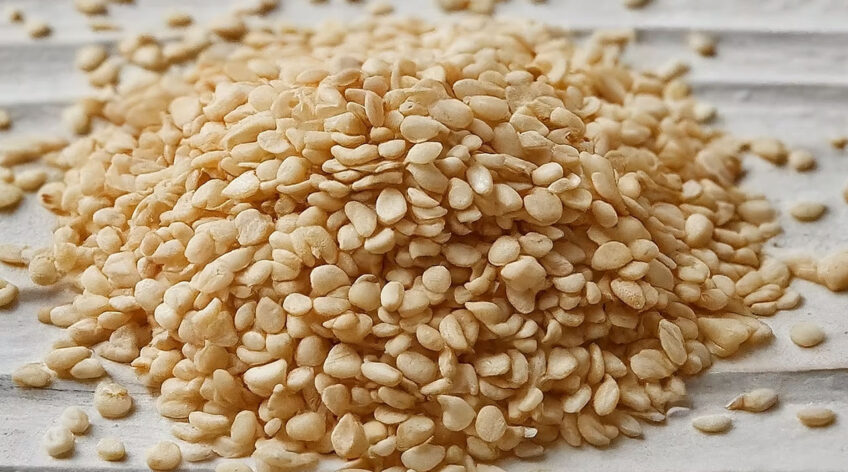- Your cart is empty Browse Shop

The Mighty Sesame Seed: Tiny Seed, Big Benefits
Sesame seeds, tiny nutritional powerhouses, have been revered for centuries for their culinary uses and health benefits. These little seeds, cultivated from the Sesamum indicum plant, are a staple ingredient in various cuisines worldwide, adding a nutty flavor and a delightful crunch to dishes. But sesame seeds offer more than just taste; they’re packed with essential nutrients that can significantly impact your health.
A Nutritional Powerhouse
Sesame seeds are an excellent source of healthy fats, including polyunsaturated and monounsaturated fats, which can help lower bad cholesterol (LDL) levels and promote heart health. They’re also a good source of plant-based protein, making them a valuable addition to vegetarian and vegan diets.
Here’s a glimpse of the rich nutrient profile of sesame seeds per 3 tablespoons (30 grams) serving:
- Calories: 168
- Fat: 14 grams (of which 9 grams are healthy fats)
- Protein: 5 grams
- Carbohydrates: 7 grams
- Fiber: 3.6 grams
- Calcium: 8% of the Daily Value (DV)
- Iron: 10% of the DV
- Magnesium: 25% of the DV
- Phosphorus: 60% of the DV
- Vitamin B1 (Thiamine): 11% of the DV
- Copper: 36% of the DV
- Manganese: 33% of the DV
Sesame seeds are also a good source of lignans, plant compounds with antioxidant and anti-inflammatory properties. These lignans may play a role in reducing the risk of certain cancers, such as breast and colon cancer.
Culinary Delights with Sesame Seeds
Sesame seeds’ versatility shines in the kitchen. They can be enjoyed whole, roasted, or ground into a tahini paste. Here are some popular ways to incorporate sesame seeds into your diet:
- Sprinkle them on: Salads, stir-fries, vegetables, rice dishes, and yogurt bowls for added texture and nutty flavor.
- Use them as a coating: Coat chicken, fish, or vegetables in sesame seeds before baking or pan-frying for a crispy and flavorful crust.
- Make tahini: Grind sesame seeds into a paste to create tahini, a key ingredient in hummus and various Middle Eastern dishes.
- Enjoy sesame oil: Drizzle a touch of sesame oil for an Asian-inspired flavor boost in stir-fries, marinades, or dipping sauces.



